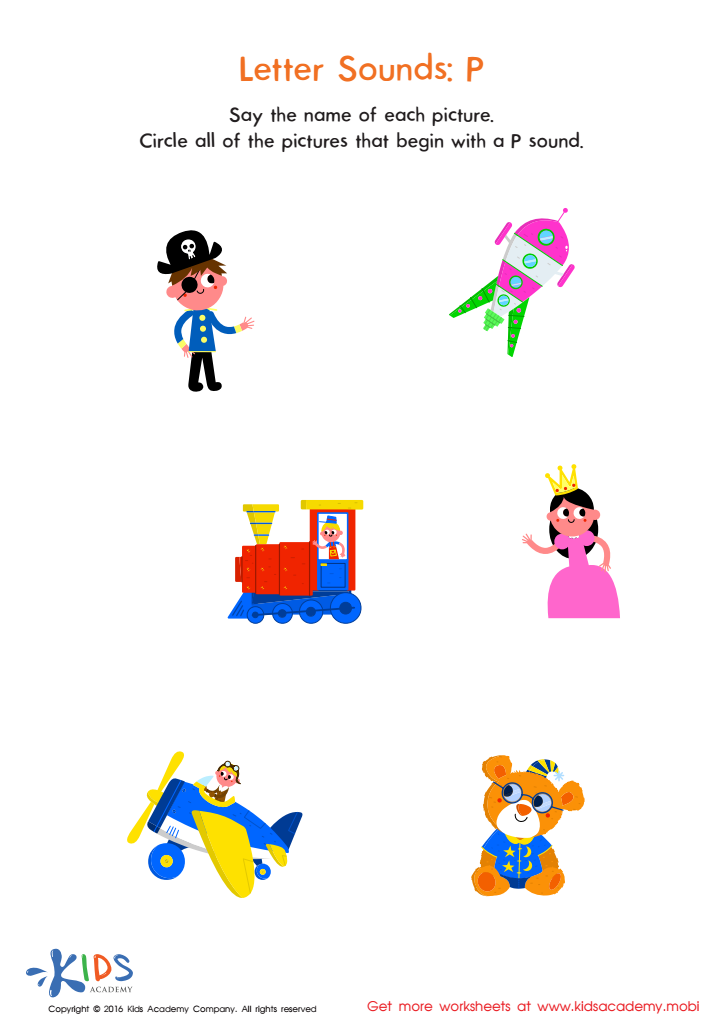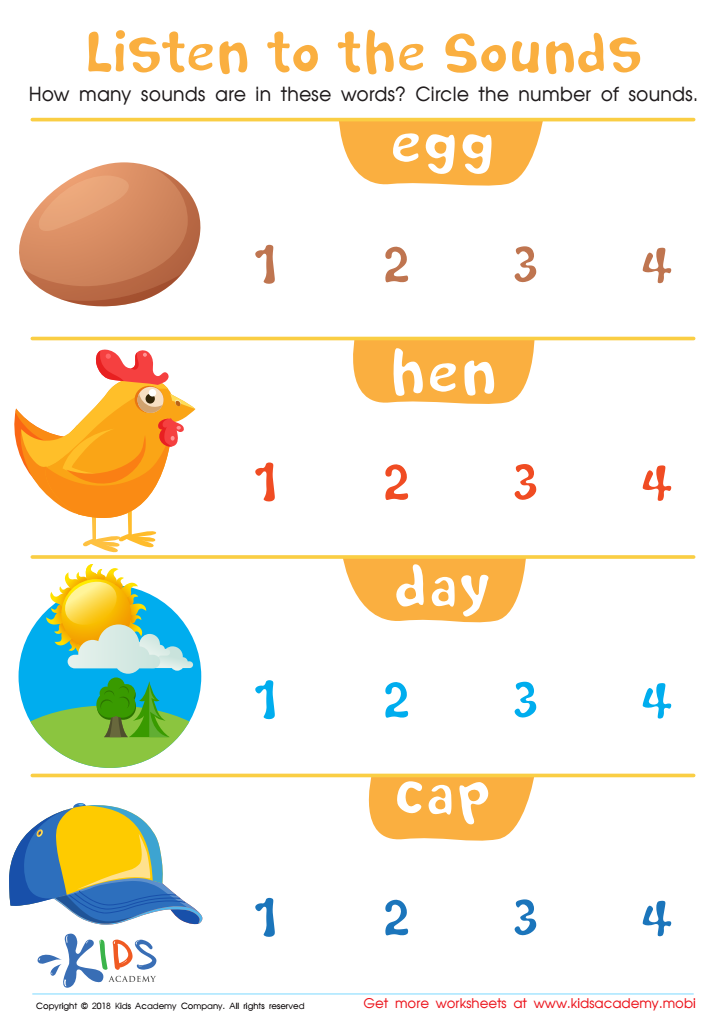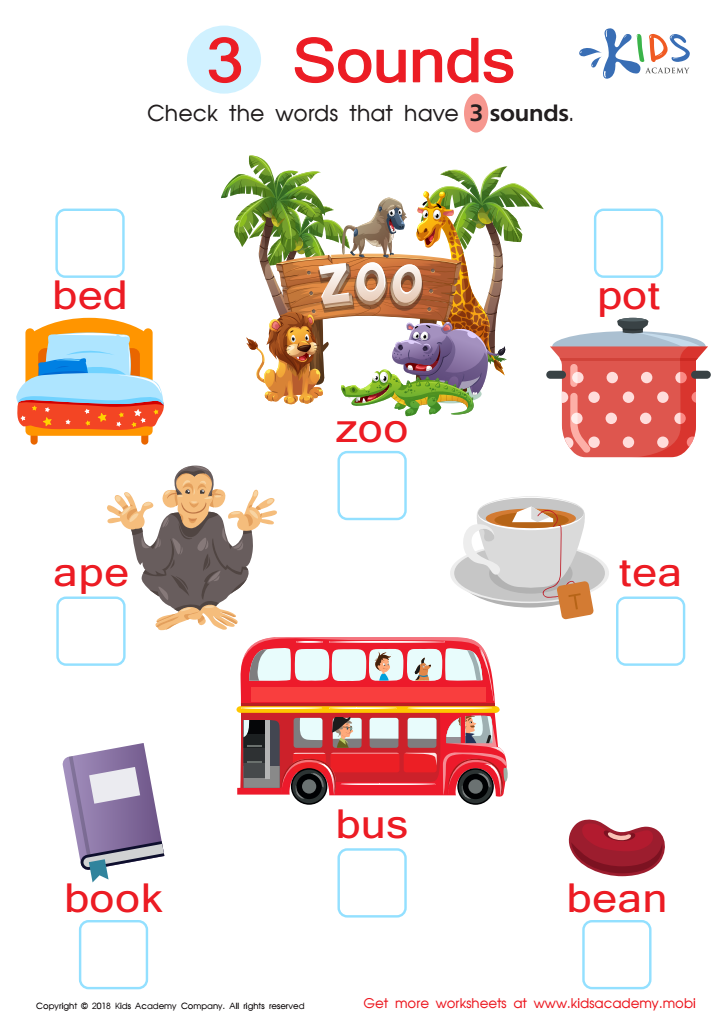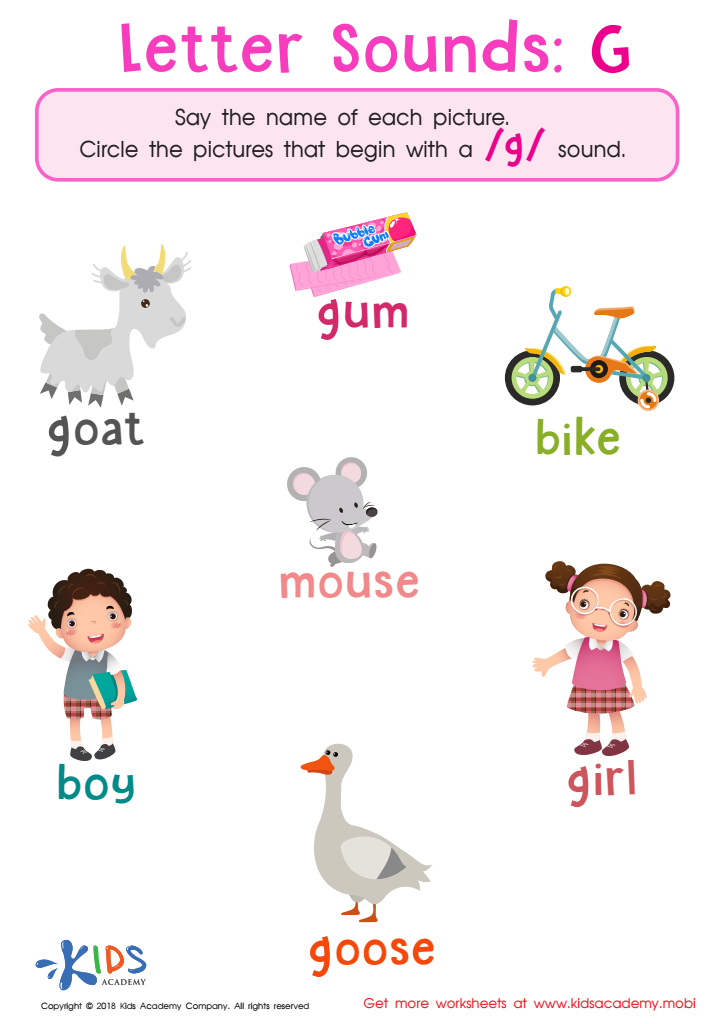Vocabulary enhancement Normal Letter Sounds Worksheets for Ages 3-6
4 filtered results
-
From - To
Boost your child's vocabulary with our engaging Normal Letter Sounds Worksheets designed specifically for ages 3-6. These worksheets combine letter recognition with sound exercises to create a fun and interactive learning experience. Each worksheet features colorful visuals and activities that encourage early literacy skills while introducing essential vocabulary words. Perfect for both classroom and home use, these resources support phonemic awareness, enabling children to identify sounds in words and enhance their language skills. Help your little learner develop a strong foundation in reading and communication with our thoughtfully crafted worksheets tailored for young minds. Get started today!


Letter P Sound Worksheet


Listen to the Sounds Worksheet


3 Sounds Worksheet


Letter G Sounds Worksheet
Parents and teachers should prioritize vocabulary enhancement through normal letter sounds for children ages 3-6 because early language development is crucial for lifelong learning. This period, often described as a window of opportunity, is when children's brains are most receptive to absorbing language skills. A solid foundation in vocabulary not only aids in effective communication but also transports children to broader worlds of learning.
Focusing on letter sounds fosters phonemic awareness, the ability to hear, identify, and manipulate sounds in spoken words. This skill is integral to reading development, facilitating the transition from spoken language to written language. When children understand the sounds associated with letters, they gain the ability to decode words, significantly improving their reading skills.
Moreover, rich vocabulary exposure promotes cognitive development. It encourages critical thinking, enhances comprehension, and boosts problem-solving abilities. Furthermore, a strong vocabulary nurtures confidence in social interactions, enabling children to express themselves clearly and engage meaningfully with their peers.
Incorporating vocabulary enhancement and letter sounds into daily activities—through playful learning, songs, and stories—creates an engaging environment that fosters curiosity and love for language. Ultimately, investing in these foundational skills paves the way for academic success and fuels lifelong learning.
 Assign to My Students
Assign to My Students














